#pollution
U.S. Rumored to Soften Emission Targets, Slow EV Adoption Push
Reports are circulating that the United States Environmental Protection Agency (EPA) will soften vehicle emissions targets against the stringent metrics proposed by the group in 2023. This follows lackluster EV adoption rates that run counter to the plan and pushback from dealer organizations, automakers, and consumer groups. But we need to take a closer look at the story, because things are rarely as simple as initially presented.
NYC Anti-Idling Bounties Are Making People Rich
In 2019, New York City basically declared war on vehicles left idling — giving citizens the ability to report any automobile they saw running so the city can come and fine them for unnecessary air pollution. As an incentive for snitches, the city said it would be willing to share a quarter of the revenue it accrued via the bust.
With fines starting at $350, this has reportedly allowed citizens to effectively turn the hobby of squealing to the cops a full-time profession. A few are even getting pretty wealthy off the Citizens Air Complaint Program by providing authorities with sufficient documentation to make sure the financial penalties stick. But there are some glaring problems with the overarching scheme.
Captain Obvious Returns: Studies Say Ride-Hailing Apps Cause Pollution
As luck would have it, hiring thousands of drivers to cruise around a city in search of their next fare has some negative environmental impacts. That’s the word coming from expert researchers at Carnegie Mellon University, who we can only hope are prepared to tackle similarly impossible quandaries — like establishing what happens to an object when it’s dropped or reaching a final determination on the wetness of water.
The study is inextricably linked to one we covered in 2018 asserting that ride-hailing services actually created more traffic congestion because it treads extremely familiar ground and seems like something that we should have already figured out on our own. But it’s also at odds with the years of messaging we’ve gotten from technology firms that have promised on-demand services (like Uber or Lyft) would usher in a new era of urban transportation striving for clearer roads and cleaner air. Based on little more than the conjecture of executives, we’ve generally accepted ride-hailing as “greener” than the alternatives and it’s well past time that we started actually thinking about it.
European Union Empowered to Recall Vehicles Over Emission Violations
Updated rules have granted the European Commission the ability to not only check cars for emissions compliance, but also issue recalls for those found in violation.
Previously, recalls were required to be issued by the EU member nations that initially certified the vehicles. But the European Commission claims this tactic has allowed automakers to easily circumvent regulatory mandates, making large-scale recalls slower to progress for almost a decade. Following Volkswagen’s diesel emissions scandal in 2015, the EU ramped up efforts to consolidate regulatory powers after the United States was the one that initially busted the German automaker for cheating during pollution tests.
The European Commission will now be able to enact recalls on its own authority and fine automakers up to 30,000 euros ($35,725 USD) per vehicle. Those in broad opposition of giving Brussels additional authority have criticized the changes, while those supportive of the EU claim it will be able to deliver environmental justice more swiftly than individual nations.
Study Suggests Tires Create More Pollution Than Exhaust Emissions
Anyone who’s laid a substantial amount of rubber in a local parking lot will tell you that the scent emitted doesn’t smell particularly healthy for the environment (burnt clutch smell is even less appealing — don’t ask how I know). And while the typical driver doesn’t burn through tires via successive smoke shows, regular road use effectively does the same thing over a much longer timeline — and a new study claims it’s up to 1,000 times worse than what actually comes out of a vehicle’s exhaust system.
The report, penned by UK-based independent research firm Emissions Analytics, has circulated within the media for a few days and claims that pollution stemming from tire and brake wear is a growing problem. With European lawmakers clamping down on tailpipe emissions, the firm suggests “non-exhaust emissions” will be the next big regulatory challenge.
Keeping Tabs: Germany Promises One Million EV Charge Points by 2030
German Chancellor Angela Merkel announced Sunday that her country will soon have one million charging stations ready for electric cars. Her words came ahead of numerous meetings with German automotive manufacturers on how best to spur EV adoption in Europe.
Pivoting to zero-emission vehicles has many worried about job losses. The United Auto Workers issued a nearly 40-page report on the implications of electric vehicles and how to address them during its negotiations with General Motors — after the automaker said the battery plant it was eyeballing in Ohio would require hourly employees to take pay cuts. The Center for Automotive Research has also indicated that EVs simply don’t take as many man hours to manufacture. It’s even mentioned in the Trump administration’s fuel economy rollback proposal — an effort bent on furnishing cheap automobiles and American jobs.
Germany is worried too, with groups echoing similar employment concerns. To mitigate those fears, while encouraging electrification and maintaining jobs, the nation wants to take its 20,000 charging stations to 1 million.
Gas War: EPA Says California Has Worst Air Quality in the U.S., Threatens to Cut Highway Funding
With California gearing up for a legal battle against federal regulators eager to revoke its fuel waiver, we knew it wouldn’t be long before another salvo was launched in the gas war. However, the latest skirmish is a bit personal. According to Automotive News, Environmental Protection Agency Administrator Andrew Wheeler issued a letter to to California Air Resource Board chief Mary Nichols on Tuesday that framed the Golden State as unfit to dictate U.S. environmental policy.
The letter claims California has “the worst air quality in the United States” and a backlog of implementation plans to address ambient pollution standards surpassing every other state in the union.
California is scheduled to receive over $4 billion in annual federal highway funding this October. Now, the EPA is claiming the state failed to enforce the U.S. Clean Air Act. As a result, the Trump administration is threatening to withdraw those funds if the region doesn’t take immediately action on 130 different state implementation plans.
FCA, GM Stocking Up On Tesla's Greenhouse Gas Credits
General Motors and Fiat Chrysler Automobiles have reportedly reached an agreement to purchase federal greenhouse gas credits from Tesla. While it’s common knowledge that the electric carmaker has raked in revenue by selling credits for years, disclosures with the State of Delaware help paint a clearer picture.
Apparently, GM filed to buy credits from Tesla earlier this year while FCA bought them on several occasions in 2016, 2018, and again earlier this year. Considering FCA’s American lineup, we’re not exactly quivering with disbelief. CEO Mike Manley could show up at a press conference, light a pool of gasoline on fire, and suggest it was Dodge’s new corporate model before we’d raise an eyebrow.
As unsurprising as FCA’s inability to adhere to present-day pollution mandates happens to be, there is a story here. The rising demand for greenhouse gas credits is changing the industry in some rather interesting ways.
European Union May Not Be Unified On Emission Regulations After All
With California and the Trump administration squabbling over vehicle emissions, it’s easy to assume that Europe’s green initiatives are progressing trouble free. In truth, things are a little more complicated. Europe has come together to endorse tougher emissions rules but one of its member states appears to be reaching its breaking point. Unsurprisingly, it’s the one that builds the most automobiles.
Earlier in the week, EU environment ministers announced a need for countries to decide on reduction targets for the foreseeable future. Germany has endorsed a proposed target for a 30-percent reduction by 2030, compared to 2021 levels. However, France and several other nations are pushing for a stricter 40-percent limit while Austria wants to see 35-percent reductions. Although, the most interesting thing about this is how closely Deutschland’s arguments for softer standards are to America’s.
Volkswagen's Settlement Cash Isn't Spreading Sunshine and Rainbows in Texas
Sprinkle a bag of cash on an area and what happens? The highest authority in said area collects it all and then decides how to dole it out. And, just like at a children’s birthday party, the squabbling soon begins — usually sparked by one guest complaining that another got a larger slice of cake.
That’s what’s currently happening in Texas, where a city with dirtier air claims it’s being short-changed after seeing the windfall headed to a smaller, cleaner city. No fair!
EPA to Resume Enforcement of 'Glider Truck' Rules
The new acting administrator of the Environmental Protection Agency, Andrew Wheeler, has jackknifed former EPA head Scott Pruitt’s decision to quit enforcing the strict sales limits imposed on glider trucks.
If you’re unfamiliar with the term, they’re basically new heavy commercial trucks that use old powertrains. Advocates argue that using refurbished engines and transmissions save business owners loads of cash and promote recycling, since the internals would likely end up in a scrapyard. However, many complain that glider trucks simply exist to circumvent emissions regulations.
During President Obama’s tenure, the EPA said that if gliders were allowed through 2025, they would make up a scant five percent of the freight vehicles on the road — but would account for one third of all nitrogen oxides and particulate emissions from the heavy truck fleet. A crackdown was inevitable.
The British Car Market Is Flushing Itself Down the Loo; Industry to Follow?
After four years of consecutive growth, the United Kingdom’s automotive market has tanked for 12 months straight. The culprit is, of course, dwindling diesel sales.
Thanks to European governments latching onto the fuel as the cleaner alternative to “petrol” throughout the 1990s (subsequently incentivizing the fuel as a way to meet aggressive CO2-reduction targets), diesel-powered autos accounted for roughly half of all new auto sales between 2009 and 2017 . But diesel is now “evil” and everyone in Europe has started avoiding it.
In March, diesel sales declined by 37.2 percent — leaving the once dominant fuel with just 32 percent of the new car market. Unsurprising, as the new trend in Europe is the widespread (future) banning of the fuel in city centers. April’s sales are expected to be even lower, as the British government’s new taxes on diesel vehicles come into effect. Those fees and a weakened pound, which practically everyone has attributed to Brexit, forced new car sales in the UK down by 16 percent.
'Artisanal' Child Labor Business Booming, Thanks to Electric Vehicle Renaissance
Electric cars have been praised as the future savior of mankind for quite some time now, but only in the last few years have mainstream automakers promised to drive headlong into EV production. Governments around the globe encourage the transition. The reality of battery production isn’t so clear-cut, however. Unless you make your daily commute in a Mack truck, odds are good that swapping to a sparkly new four-door with a lithium-ion battery isn’t going to be better for the environment.
Currently, it takes substantially more energy to produce an electric car than a conventional internal-combustion model. EVs sourcing their energy from fossil fuel-burning power plants aren’t much better for the environment than something that runs off pump gas. In addition to that, defunct batteries have to be recycled or they become environmental hazards — and no one has quite figured out the best way to do that yet.
There’s also the issue of sourcing the materials for those batteries. EV cells need scarce precious metals like nickel and cobalt. Those materials take a lot of energy to harvest and have, unfortunately, led to an increase in child labor rates in Africa.
Nearly There: Feds Green-light Emission Fix for More Audi Diesels
The Environmental Protection Agency and California Air Resources Board have approved emissions repairs for another 24,000 Audi vehicles equipped with the 3.0-liter diesel V6.
Back in May, a U.S. District Judge ruled that if Volkswagen Group failed to obtain government approval for fixes on its emissions-cheating diesels, it would be forced to offer owners buy-backs. Keen not to spend even more money as a result of dieselgate, the company went to work on a solution — resulting in an initial 38,000 Audi and Porsche vehicles spared from the wrecking yard.
The new approval covers 2014-2016 Audi A6 Quattro, A7 Quattro, A8, A8L and Q5 diesel models. The vehicles are to have their defeat device software removed and various hardware components replaced to ensure emissions compliance. VW says it has now has a remedy for about 75 percent of its tainted 3.0-liters, and hopes to have a solution for the remaining 20,000 soon.
Gas Be Gone: California Working on Bill to Banish Internal Combustion Cars by 2040
California Assemblyman Phil Ting, a Democrat chairing the chamber’s budget committee, says he intends to introduce a bill that would allow the state’s motor vehicle department to register only automobiles that emit no carbon dioxide, such as battery-electric vehicles or hydrogen fuel cell cars.
The proposed legislation would ultimately ban internal combustion engines, mimicking similar actions taken by France and the United Kingdom. Ting claims that, without a plan in place, California’s attempt to dramatically reduce greenhouse emissions by 2050 will prove ineffective.



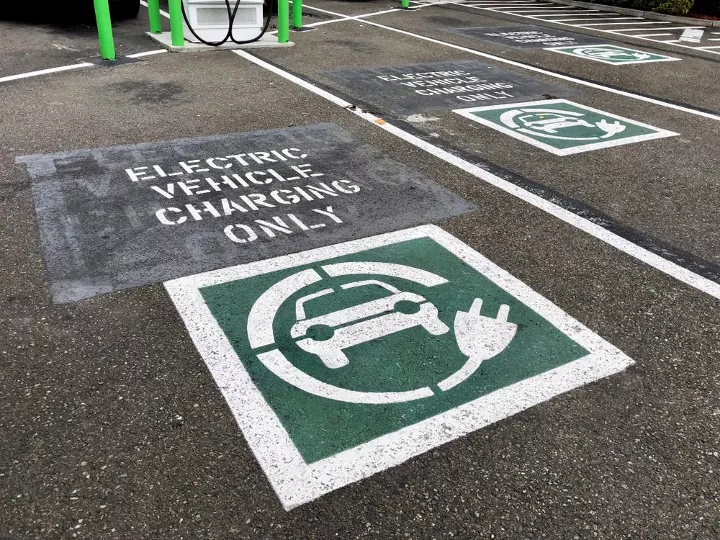
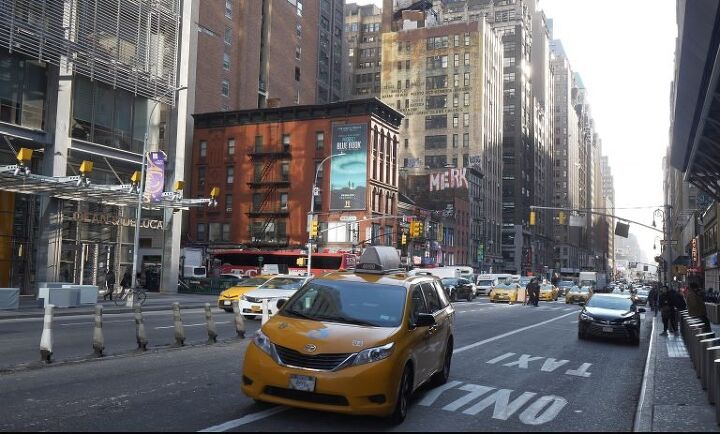
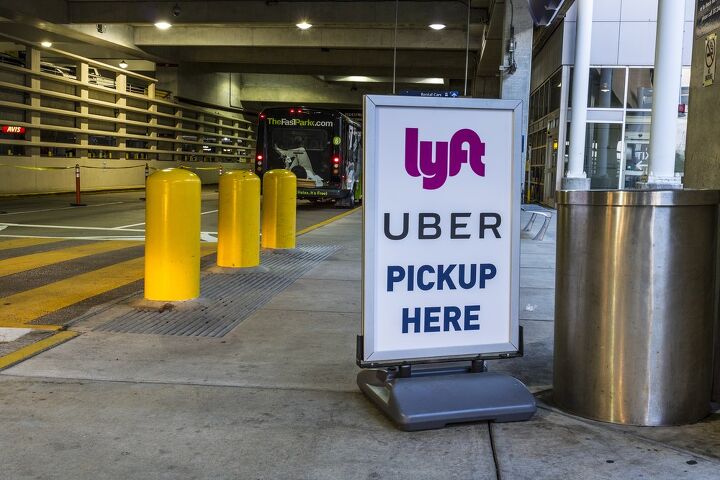




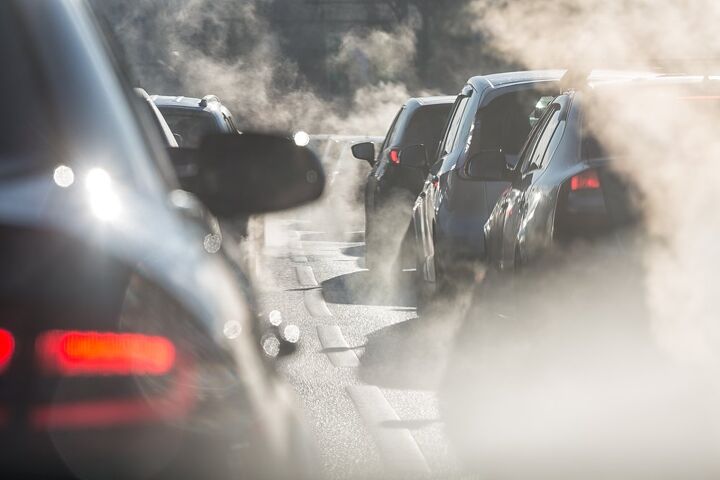


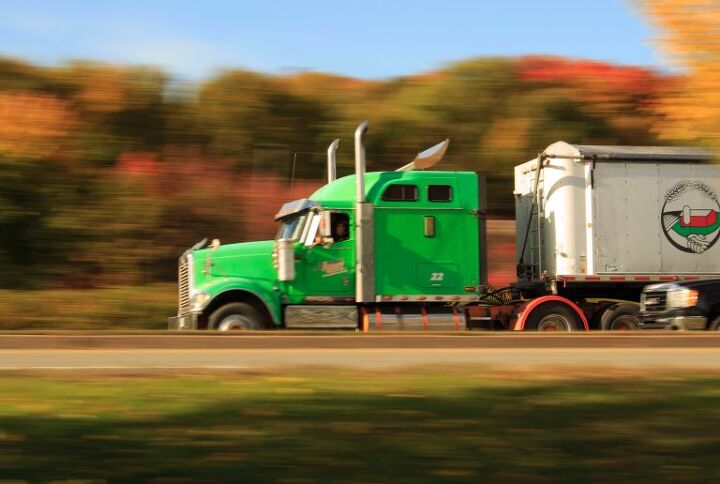
















Recent Comments